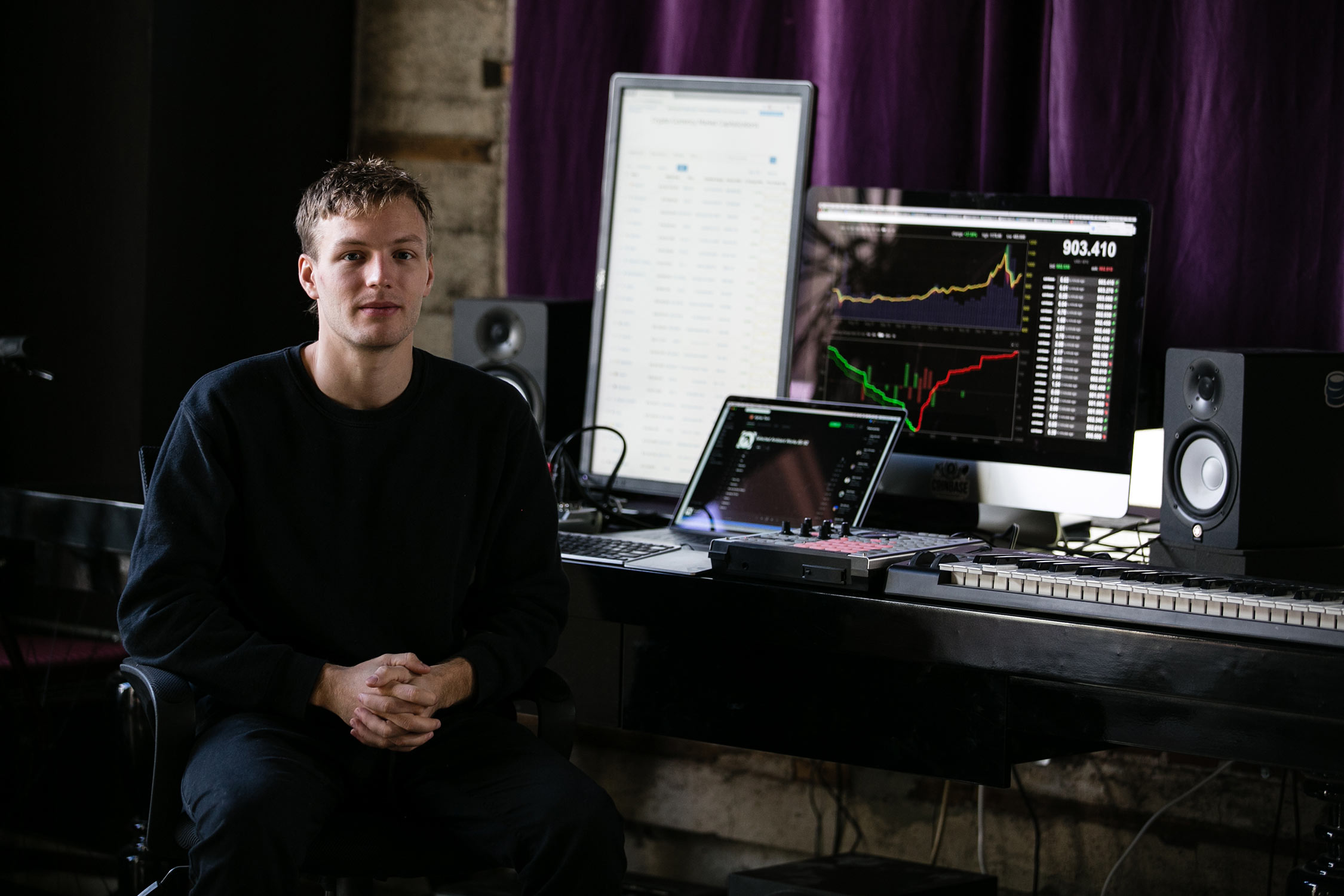Betting on BlockchainOlaf Carlson-Wee ’12
Betting on BlockchainOlaf Carlson-Wee ’12
Olaf Carlson-Wee ’12 recently established his own hedge fund and brought in $5 million from investors who are betting the future will bring success to cryptocurrencies like Bitcoin that use encryption techniques to verify and transfer

Carlson-Wee became interested in Bitcoin during his senior year—going so far as to make the cryptocurrency the topic of his undergraduate thesis. Now, he’s created an investment company, Polychain Capital, which manages a hedge fund that sets its sights on the success of cryptocurrencies and the blockchain—the technology that enables them to work.
While many have heard of Bitcoin, the most successful cryptocurrency to date, fewer are familiar with blockchain technology. Essentially, it’s a web-based ledger that’s maintained by a community of miners—people from around the world who each have a copy of the ledger and validate and process transactions.
Traditionally, your personal data is housed on the servers of the institutions and companies you do business with. Think of the information for your bank account—personal and financial information—as a set of data stored along with data from thousands or millions of other bank customers and housed on the bank’s servers. That means the bank owns your information, and it also means it can be vulnerable to hacking since all of the data is stored together.
Blockchains have data stored in blocks that are attached to the previous block as more data is added to it—like links on a chain. These chains can’t be hacked and each individual block stores only limited data from individual actions—say, a purchase—and not any of your personal information. Additionally, no individual person or entity controls this distributed ledger, so it cannot be tampered with.
If it sounds complicated, it’s because it is, Carlson-Wee says. “Where there is complexity, there is
Blockchain-based assets are resilient from attack because as new transactions are passed to the miners, a majority must agree that they are cryptographically valid before they are then added to the ledger.
“Where there is complexity, there is
opportunity .”
“The creator of Bitcoin designed many things extremely well and it took a long time for people to unpack how well-designed it really was. Now, we’re entering an era where people are creating substantial enhancements on Bitcoin’s original design. These new technologies are what my firm invests in,” Carlson-Wee says.
The large web services of the last 10 years all build a network of users and extract value from it, he notes—think LinkedIn, Facebook, Uber, and Airbnb. In the future, the value of these networks will go back to the users, as blockchain-based peer-to-peer protocols replace centralized services.
That means when you apply for a loan, become a vendor on eBay, or start driving for Uber, you will be able to use your sovereign identity, which is stored on a blockchain and is transferable between networks. And the value of a user’s identity stays with him/her instead of centralized rent extractors—those who harvest data in exchange for profit, using your data to gear advertising toward you.
The hedge fund Carlson-Wee developed invests in the future of blockchain technology by buying novel cryptocurrencies. Since incorporating his company in September, he’s raised $8 million and hopes to have amassed $15 million by the end of the year.
The cryptocurrencies are funded by open-source community
“Imagine an early user of Facebook got 1,000 shares of the company and a later user got 100 shares,” Carlson-Wee says. This means not only is the cryptocurrency valuable to early network users but there are monetary incentives that increase as the network grows. Bitcoin was the first example of this incentive structure, where its users financially benefited from its success.
“I predict that over the next couple of years, we will see some of these networks grow extremely quickly,” Carlson-Wee says.
Prior to starting Polychain Capital, Carlson-Wee was the first employee of Coinbase, which is now the largest digital asset exchange in the United States. In the three
“I enjoy when things are small and scrappy and you have to move quickly and there’s not really